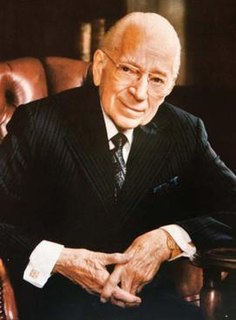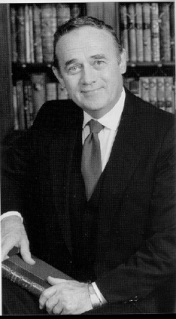
There are a number of disputes concerning the Church of Scientology's attempts to suppress material critical of Scientology on the Internet, utilizing various methods – primarily lawsuits and legal threats, as well as front organizations. In late 1994, the organization began using various legal tactics to stop distribution of unpublished documents written by L. Ron Hubbard. The organization is often accused of barratry through the filing of SLAPP suits. The organization's response is that its litigious nature is solely to protect its copyrighted works and the unpublished status of certain documents.
The Church of Scientology has been involved in court disputes in several countries. In some cases, when the Church has initiated the dispute, questions have been raised as to its motives. The Church of Scientology says that its use of the legal system is necessary to protect its intellectual property and its right to freedom of religion. Critics say that most of the organization's legal claims are designed to harass those who criticize it and its manipulative business practices.

Herbert W. Armstrong was an American evangelist who founded the Worldwide Church of God (WCG). An early pioneer of radio and television evangelism, Armstrong preached what he claimed was the comprehensive combination of doctrines in the entire Bible, in the light of the New Covenant scriptures, which he maintained to be the restored true Gospel. These doctrines and teachings have been referred to as Armstrongism by non-adherents.

The Urantia Book is a spiritual, philosophical, and religious book that originated in Chicago sometime between 1924 and 1955. The authorship remains a matter of speculation. It has received various degrees of interest ranging from praise to criticism for its religious and science content, its unusual length, and its lack of a known author.
The Free Zone, “Freezone”, or more recently identified as Independent Scientology, comprises a variety of non-affiliated independent groups and individuals who practice Scientology beliefs and techniques independently of the Church of Scientology (CoS). Such practitioners range from those who closely adhere to the original teachings of Scientology's founder, L. Ron Hubbard, to those who have adapted their practices so far that they are almost unrecognizable as Scientology.

Since its inception in 1954, the Church of Scientology has been involved in a number of controversies, including its stance on psychiatry, Scientology's legitimacy as a religion, the Church's aggressive attitude in dealing with its perceived enemies and critics, allegations of mistreatment of members, and predatory financial practices; for example, the high cost of religious training:191 and perceived exploitative practices. When mainstream media outlets have reported alleged abuses, representatives of the church have tended to deny such allegations.
The Fishman Affidavit is a set of court documents submitted by self-professed ex-Scientologist Steven Fishman in 1993 in the federal case, Church of Scientology International v. Fishman and Geertz (Case No. CV 91-6426.
Armstrongism is the teachings and doctrines of Herbert W. Armstrong while leader of the Worldwide Church of God (WCG). His teachings are professed by him and his followers to be the restored true Gospel of the Bible. Armstrong said they were revealed to him by God during his study of the Bible. The term Armstrongite is sometimes used to refer to those that follow Armstrong's teachings. Armstrongism and Armstrongite are generally considered derogatory by those to whom it is applied, who prefer to be known as members of the Church of God (COG). These doctrines were also espoused by his sons Richard David Armstrong and Garner Ted Armstrong with slight variations.
In Scientology, Operating Thetan (OT) is a notional spiritual status above Clear. It is defined as "knowing and willing cause over life, thought, matter, energy, space and time (MEST)." According to religious scholar J. Gordon Melton, "It’s basically a variation of the Gnostic myth about souls falling into matter and the encumbrances that come with that" with the exception in that instead of Divine intervention, there is Alien intervention. The Church teaches Operating Thetan doctrine in eight separate stages, or Levels; however, the Church claims there are actually fifteen Levels, and critics argue the Church uses the missing Levels to incentivize believers into giving more money to the Church in order to be able to experience them once they are finally released. Sometimes the Church requires believers to retake, and therefore pay again for, previous courses in the meantime as they await the missing Levels. Each course costs a considerable amount of money, often thousands of US dollars.
The Avatar Course, often simply called Avatar, is a series of LGAT self-development courses founded in 1986 by Harry Palmer and run by his privately held company, Star's Edge, Inc., which trains and licenses Avatar Masters (teachers) to deliver the Avatar Course globally.

Joseph W. Tkach was the appointed successor of Herbert W. Armstrong, founder of the Worldwide Church of God. Tkach became President and Pastor General of the church upon the death of Armstrong in 1986. Tkach spearheaded a major doctrinal transformation of the Worldwide Church of God, abandoning Armstrong's unconventional doctrines and bringing the church into accord with orthodox evangelical Christianity. His son, Joseph Tkach Jr., continued his work and in 1997 the Worldwide Church of God became a member of the National Association of Evangelicals.

Bare-faced Messiah: The True Story of L. Ron Hubbard is a posthumous biography of Scientology founder L. Ron Hubbard by British journalist Russell Miller. First published in the United Kingdom on 26 October 1987, the book takes a critical perspective, challenging the Church of Scientology's account of Hubbard's life and work. It quotes extensively from official documents acquired using the Freedom of Information Act and from Hubbard's personal papers, which were obtained via a defector from Scientology. It was also published in Australia, Canada and the United States.
Moxon & Kobrin is a "captive" law firm of the Church of Scientology, meaning that it has no other clients apart from Scientology-affiliated entities. Its headquarters are located in Burbank, California." Wilshire Center Business Improvement District. Its members are: Kendrick Moxon, Helena Kobrin, and Ava Paquette.

A Piece of Blue Sky: Scientology, Dianetics and L. Ron Hubbard Exposed is a 1990 book about L. Ron Hubbard and the development of Dianetics and Scientology, authored by British former Scientologist Jon Atack. It was republished in 2013 with the title Let's sell these people A Piece of Blue Sky: Hubbard, Dianetics and Scientology. The title originates from a quote of Hubbard from 1950; an associate of Hubbard's noted him saying that he wanted to sell potential members "a piece of blue sky".
OT VIII or OT 8 is the highest current auditing level in Scientology. OT VIII is known as "The Truth Revealed" and was first released to select high-ranking public Scientologists in 1988, two years after the death of Scientology's founder, L. Ron Hubbard. OT VIII is only delivered to members of the Church of Scientology in one place—aboard the organization's private cruise ship, the Freewinds. OT 8 is also available in the Scientology Independent Field. There are a few advanced auditors that are able to deliver the level to those who meet the prerequisites.
Scientology is a set of beliefs and practices invented by American author L. Ron Hubbard, and an associated movement. It has been variously defined as a cult, a business, or a new religious movement. The most recent published census data indicate that in the United States there were about 25,000 followers ; around 2,300 followers in England (2011); and about 1,700 each in both Canada (2011) and Australia (2016). Hubbard initially developed a set of ideas that he called Dianetics, which he represented as a form of therapy. This he promoted through various publications, as well as through the Hubbard Dianetic Research Foundation that he established in 1950. The foundation soon entered bankruptcy, and Hubbard lost the rights to his book Dianetics in 1952. He then recharacterized the subject as a religion and renamed it Scientology, retaining the terminology, doctrines, and the practice of "auditing". By 1954, he had regained the rights to Dianetics and retained both subjects under the umbrella of the Church of Scientology.
The Philadelphia Church of God (PCG) is an international church based in Edmond, Oklahoma, USA. The PCG traces its roots to the Worldwide Church of God (WCG), founded by Herbert W. Armstrong (1892–1986). The PCG was founded by Gerald Flurry with the stated purpose of continuing Armstrong's teachings, which were re-evaluated and subsequently rejected by the WCG after Armstrong's death, as it came to accept mainstream Christian teachings, such as the Trinity. Armstrong had rejected the Trinity doctrine in favor of the view that God is not one but two separate God-beings into which Family, according to Armstrong, humans, "upon true conversion and spiritual growth", may be born.
The Urantia Foundation is a Chicago-based non-profit organisation, founded 1950, that provides materials, promotes events, and provides guidance associated with The Urantia Book.

Religious Technology Center v. Netcom On-Line Communication Services, Inc., 907 F. Supp. 1361, is a U.S. district court case about whether the operator of a computer bulletin board service ("BBS") and Internet access provider that allows that BBS to reach the Internet should be liable for copyright infringement committed by a subscriber of the BBS. The plaintiff Religious Technology Center ("RTC") argued that defendant Netcom was directly, contributorily, and vicariously liable for copyright infringement. Netcom moved for summary judgment, disputing RTC's claims and raising a First Amendment argument and a fair use defense. The district court of the Northern District of California concluded that RTC's claims of direct and vicarious infringement failed, but genuine issues of fact precluded summary judgment on contributory liability and fair use.

Hubbard v Vosper, [1972] 2 Q.B. 84, is a leading English copyright law case on the defence of fair dealing. The Church of Scientology sued a former member, Cyril Vosper, for copyright infringement due to the publication of a book, The Mind Benders, criticizing Scientology. The Church of Scientology alleged that the books contained material copied from books and documents written by L. Ron Hubbard, as well as containing confidential information pertaining to Scientology courses. Vosper successfully defended the claim under the fair dealing doctrine, with the Court of Appeal deciding unanimously in his favour. The judgment given by Lord Denning clarified the scope and content of the fair dealing defence.








